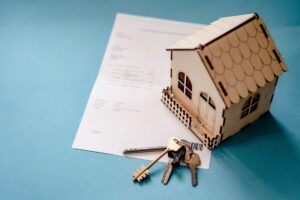The rental income a property can provide for its owner is a great potential for investors. However, as with any house, wear and tear will necessitate repairs and upkeep. Depreciation on rental properties is one deduction you can use to offset this cost. So, how does depreciation work on rental property?
How Does Depreciation Work on Rental Property?
Depreciation for investment properties is a method of spreading out the cost of writing off a big asset with a long useful life (often a year or more) over an extended period of time. Depreciating rental property can help you save money in the long run by reducing your taxable income.

This fundamental accounting principle can be useful for investors looking to optimize their returns on a particular property while keeping their costs to a minimum. Using a formula, you can calculate depreciation loss annually and then write it off on your tax return. If you are considering investing, these tax breaks could be a crucial factor to consider.
What Is Rental Property Depreciation?
Depreciation is based on the idea that physical assets deteriorate or wear out over time. This causes an asset’s value to decline over time. Real estate, like any other investment asset, is expected to show signs of wear and tear over time simply due to normal use.
Spending money on upkeep and renovations for a rental property is well spent. A property’s initial purchase price and any subsequent improvements are amortized over time through a process called depreciation. By spreading out the tax write-off across the property’s useful lifetime, depreciation reduces the tax burden in the year of purchase (or improvement).
If you have rental properties in your portfolio, you need to know how depreciation works according to the Internal Revenue Service’s (IRS’s) strict regulations.
How to Determine Depreciable Rental Property
Depreciation can be a lucrative option for real estate investors only if they match specific criteria. The IRS stipulates the following conditions, fulfillment of which is mandatory:
- You must be the legal owner of the property. Subletting a leased property is not tax deductible. It is important to remember, though, that the IRS still considers you the legal home owner even if a mortgage is in place.
- The property has to be income-generating or for commercial property use. A primary residence is not deductible. However, any income-producing improvements, such as a home office, qualify.
- The property has to be depreciable and has a useful life that can be determined. Remember that land is not depreciable because it is never truly “used up.”
- The property is expected to last longer than a year. If you place a property in service and then discard it (or no longer use it for commercial purposes) in the same year, it cannot undergo depreciation.
As a rule, fix-and-flip investors who hold on to a property for less than a year are not eligible to deduct any improvements they make. Furthermore, wholesalers cannot take a depreciation deduction because they do not actually own the properties they are selling. Costs associated with site preparation, such as planting, clearing, and landscaping, belong to the land, not the buildings, and hence cannot be depreciated.
Calculating Rental Property Depreciation
You can calculate depreciation on a rental property on an annual basis using these three factors:
- The cost basis of the property
- The useful life of the property
- The depreciation system that you use.
Here is a brief rundown of these factors and how to use them in calculating rental depreciation:
Determine the Cost Basis of the Property
An asset’s cost basis is its determined worth before it begins to depreciate. Obviously, this is more than the asking price. It is the final cost after all adjustments have been made. Since land rarely depreciates due to wear and tear, depreciation write-offs are just permitted for buildings.

To determine the true cost of an investment property, the land’s market value must be subtracted from the total price. After acquiring property, it is occasionally necessary to revise the initial cost base in most cases. If you spend $25,000 fixing up or remodeling a property, you will have to add that sum to the property’s cost basis.
In addition to the purchase price and the money spent on fixing the property, the following costs can be factored into the property’s cost basis:
- Legal fees
- Property survey fees
- Transfer taxes
- Other closing costs
Determine the Depreciation System to Use
Accounting for all residences placed in use after 1986 is done under the Modified Accelerated Cost Recovery System (MACRS). For determining annual depreciation amounts, these properties adhere to the General Depreciation System (GDS) guidelines.
Depreciation can also be calculated using the Accelerated Cost Recovery System. However, that method is outside the scope of this guide and applies to assets placed in service before 1987. Get the advice of accountants versed in this depreciation technique if you plan on adopting this system.
General Depreciation System (GDS)
It is expected that most taxpayers will employ GDS in accordance with the MACRS guidelines. Residential rental properties have a 27.5-year useful life, while commercial rental properties have a 39-year recovery term.
GDS uses a straight-line depreciation structure for residential rental properties and even commercial rental properties. This means that annual depreciation amounts can be calculated by dividing the property’s value by the depreciation term.
Alternative Depreciation System (ADS)
You are required to use ADS if required by law or if you have made an irrevocable election to do so. Otherwise, GDS is your only option. This system is compulsory when:
- You use the property less than half the time
- The property legally has an intended purpose that is exempt from taxation.
- The property is financed with tax-exempt bonds
- The property is used for farming and agricultural activities the majority of the time.
Anyone who owns a rental and is considering depreciating it via ADS should discuss their options with an accountant.
Duration of Depreciation
The IRS has established uniform guidelines for determining a property’s useful life. The Internal Revenue Service requires that real estate depreciation deductions begin when the property is placed in service or is made available for rental. Recovery periods, throughout which you can claim depreciation, vary from asset type to asset type; this is especially true for real estate assets.

With the Modified Accelerated Cost Recovery System (MACRS), an accounting method that spreads costs (and depreciation deductions) over a longer period of time, residential rental properties placed in operation after 1986 have a recovery period of 27.5 years, while the recovery period for a commercial structure is 39 years.
This works out to an annual depreciation expense of 3.636% for residential buildings and 2.564% for commercial properties. This is the amount of time the IRS considers to be the “useful life” of a rental property. Until any of the following occurs, depreciation can be claimed on the property:
- You have deducted the full amount from your basis in the property, whether that be the purchase price or any other amount.
- The property is retired from service regardless of whether or not the full cost or any other basis has been recouped. When a piece of real estate is no longer used to generate revenue, whether by sale, exchange, personal use, abandonment, or destruction, it is considered retired from service.
How to Calculate Partial Year Depreciation on Rental Property
Before now, we have considered how to calculate the depreciation deductions based on a full year of depreciation on the rental. So, let us say you want to acquire a rental property, and it is the middle of the year before you can do so; how do you calculate the depreciation on such property?
Luckily, the IRS has been able to provide an official response to this topic, so you do not have to speculate. The IRS provides the following table to help you determine the percentage of the property’s cost basis you can depreciate based on the month in which the property was placed in operation.
| Month the Property is Put into Service | Depreciation Percentage of Cost Basis |
|---|---|
| January | 3.845% |
| February | 3.182% |
| March | 2.879% |
| April | 2.576% |
| May | 2.273% |
| June | 1.970% |
| July | 1.667% |
| August | 1.364% |
| September | 1.061% |
| October | 0.758% |
| November | 0.455% |
| December | 0.152% |
It is easy to miss this tax advantage if you are a first-time investor, especially if you handle your own taxes. Fortunately, you can retroactively take advantage of the depreciation tax credit by reporting it on your most recent tax return. You can claim this tax credit by filing Form 1040X along with any other necessary forms and schedules
How Rental Depreciation Affects Your Taxes
One way that rental depreciation affects your taxes is through lowering your taxable income. Depreciation is a method of offsetting the cost of maintenance and repairs on rental property. Each year, you can claim this deduction to lower your taxable rental income. You can break depreciation down into two categories:
- Straight-line depreciation
- Accelerated depreciation

The most typical kind of depreciation is called straight-line depreciation, and it is based on the idea that property would gradually lose value over time at a constant rate. Accelerated depreciation is somewhat more complicated because it is based on the idea that an asset will depreciate more rapidly in its early years and then level off later on.
If you own many rental properties, rental depreciation might have a considerable impact on your yearly tax bill. This makes it best to work with commercial real estate experts like Si Vales Valeo Real Estate. We have experience advising and handling commercial real estate transactions, including rental property taxes. We are your best shot if you want to invest in commercial properties in Cincinnati MSA.
How to Retroactively Claim Depreciation on Rental Property
Despite the fact that it is optional to depreciate a rental property, the Internal Revenue Service will not treat the sale of such an asset as such. At the time of sale, the Internal Revenue Service will work on the assumption that you have taken advantage of the deductions and will demand that you pay any applicable depreciation recapture tax.
It is possible to file revised tax returns for mistakes made up to three years ago, including cases where depreciation was not calculated when it should have been. Fill out IRS Form 3115, Application for Change in Accounting Method, if you need to change your accounting method due to an error that occurred in the past.
Frequently Asked Questions
What Is the Income Limit for Rental Property Depreciation?
Owners can deduct up to $25,000 from their gross income before hitting the $100,000 cap for rental property depreciation. Real estate professionals who own rental properties can deduct all of their losses from their active income.
How Do I Deduct the Expense of New Appliances for my Rental Properties?
You cannot write off new appliances as an expense because of their predictable short life span (usually five years or less). You can depreciate the cost over a period of five years, or choose to add the amount to their cost basis and continue depreciating against the amended cost basis.
How Do You Avoid Depreciation Recapture Tax on Rental Property?
You can avoid recapture tax on a rental property by using a 1031 exchange. Using a 1031 exchange, you can reinvest your sale proceeds into more rental properties, perhaps of a higher value. Through a 1031 exchange, you can invest the proceeds from selling one property into purchasing another without ever seeing the cash.
Conclusion
As long as tenants need housing, investing in rental properties is a sound financial strategy. Although depreciation on rental properties cannot be claimed entirely instantaneously, it can be a valuable tool for lowering taxable income over time. Similarly, depreciating rental properties might help you build wealth without increasing expenses.






